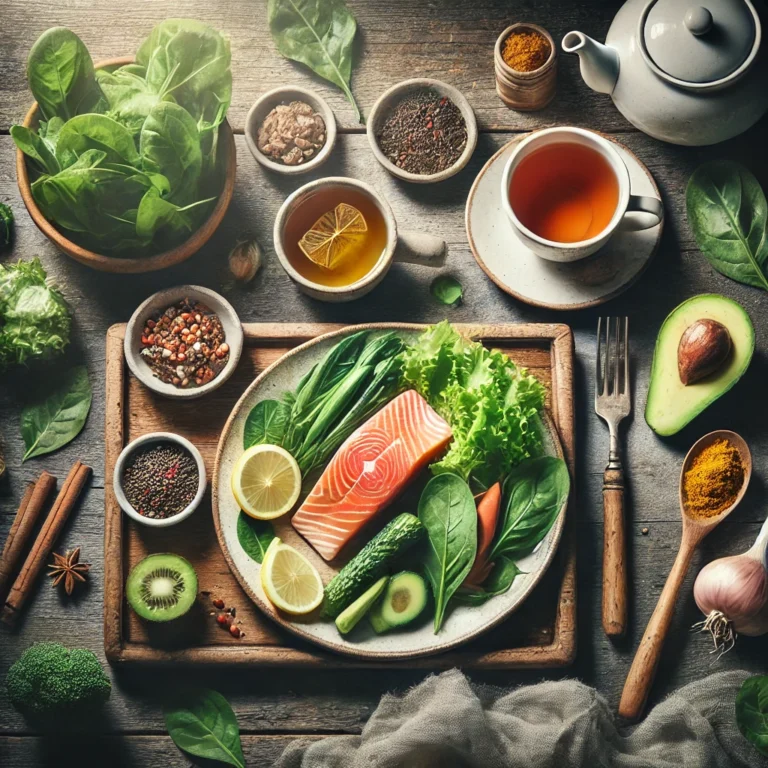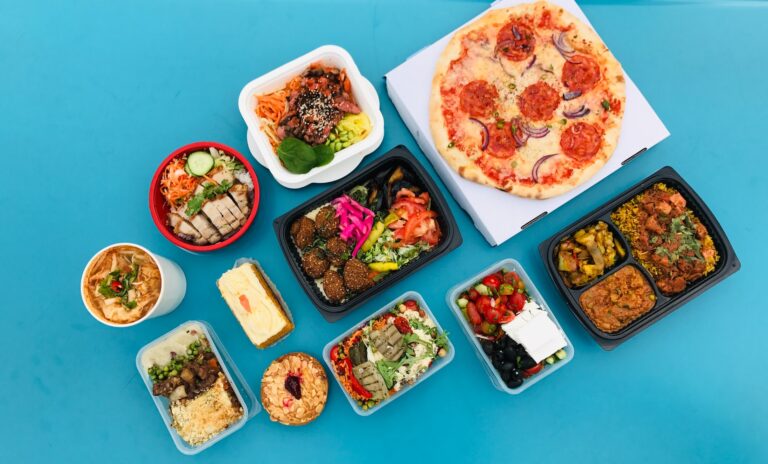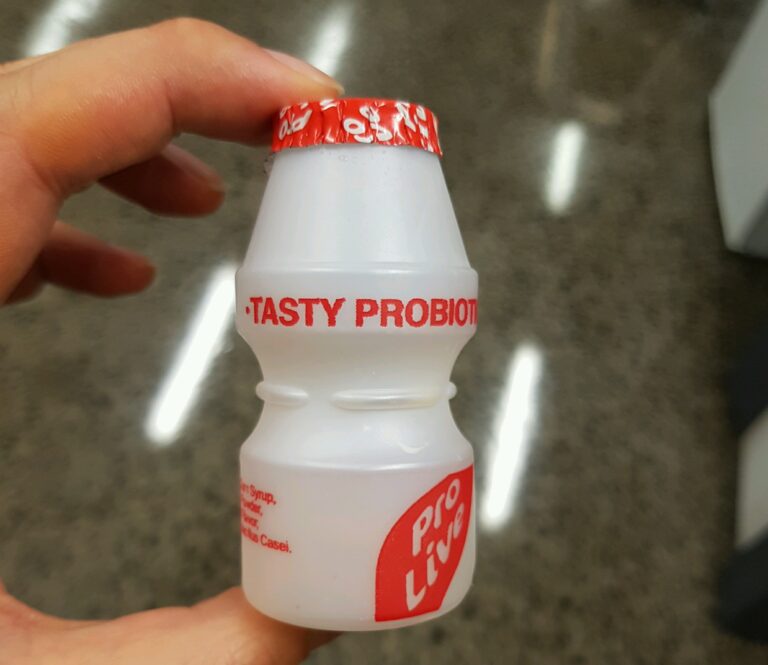It’s a fascinating fact: roughly 1 in 650 people in the UK suffer from Crohn’s disease1. This often means finding ways to handle tough symptoms while still living joyfully. A big part of this puzzle is what we eat. Interestingly, the right food choices can really help ease symptoms and boost how you feel overall.
Exploring Crohn’s Disease and Diet
Crohn’s disease is an ongoing condition that causes inflammation in your digestive system. This can lead to problems like a sore tummy or even severe malnutrition, making everyday life tricky. While there isn’t a magic food plan that works for everyone, noticing how certain foods affect you can lessen symptoms and make your days more comfortable.
This guide shares helpful tips on using food to feel better with Crohn’s disease. Whether you’ve just been diagnosed or are seeking ways to feel better, here you’ll find handy advice on changing your meals to soothe your tummy and support your journey to improved gut health. For practical ideas – including some easy recipes for Crohn’s disease – remember that even small dietary changes can make a real difference in daily life.
Understanding Crohn’s Disease and Eating Well
Inflammation and Its Impact on Crohn’s
Crohn’s disease, a type of inflammatory bowel disease, results from inflammation along parts of the digestive system, usually the small intestine. This can make digesting food and soaking up nutrients really hard, leading to nasty symptoms like weight loss and undernourishment.
The food we eat can make a big difference. While some foods can help calm inflammation, others might upset your tummy and cause discomfort. Figuring out what to eat can bring a noticeable change in how you manage the condition daily.
How Diet Influences Crohn’s Symptoms
You might experience symptoms like:
- Tummy aches and cramps
- Long-lasting diarrhoea or alternating with constipation
- Tiredness from anemia or lacking nutrients
- Weight loss because you’re not absorbing nutrients properly
Food choices can have a big influence on these symptoms. They become really important in everyday management of Crohn’s disease.
Using Food as Part of Treatment
While medicines and sometimes operations are needed to control Crohn’s disease, eating the right foods is valuable too. Choosing good foods can lessen stress on your digestion and cut down symptoms. Not everyone has the same experience with Crohn’s, but being careful with what you eat can make medications work better and strengthen your gut.
Tips on Eating to Manage Crohn’s Disease
Tailor Your Diet to You
A top tip in managing Crohn’s disease with food is to have a diet that suits you best. Everyone reacts differently to foods, so it’s key to know your own triggers. Keeping a food journal is a smart way to track what you eat and how it makes you feel. Identifying patterns helps manage flare-ups more effectively.
Smaller Meals More Often
Big meals can be tough on your digestion. Eating smaller meals more often can help your body digest without causing a flare-up. Try eating five small meals throughout the day. This routine helps your body digest easier, so you feel better more of the time.
Keep Hydrated
People with Crohn’s often have diarrhea, which can lead to losing too much water. Hydration is key! Drink water, herbal teas, or mixes with electrolytes. Stay away from caffeinated, sugary, or fizzy drinks as they may upset your tummy.
Good Foods for a Crohn’s Diet
Choosing foods that are easy on your digestion and nutritious can really help manage symptoms of Crohn’s disease. Here are some food types that might be good for you:
Lean Proteins
- Chicken and Turkey: These are low in fat and gentle, a great protein option which won’t upset your tummy.
- Fish: Types like salmon and tuna are packed with omega-3 fatty acids that can calm inflammation.
- Eggs: These are easy to digest and full of good protein.
Low-Fibre Fruits
- Bananas: These are calm on your tummy, perfect during flare-ups.
- Melons: Juicy and easy to digest, they can keep your gut happy.
- Skinned Apples and Pears: Removing skins makes these fruits softer and kinder to your tummy.
Cooked Vegetables
- Carrots and Courgettes: When cooked, these veggies become soft and are gentle on digestion.
- Potatoes (No Skins): These can soothe a troubled tummy during flare-ups.
- Cooked Spinach: A rich source of iron; cooking it makes it easy on digestion.
Refined Grains
- White Rice: Low in fibre and gentle on the tummy, ideal if you’re having a flare-up.
- White Bread: This is easier to digest than whole-grain, which can be high in fibre.
- Soft Cereals: Options like well-cooked oatmeal are comforting and nutritious for breakfast.
Healthy Fats
- Olive Oil: This is great for your heart and can help reduce inflammation.
- Avocados: Packed with healthy fats, they’re tasty and easy to digest.
- Flaxseed Oil: Known for calming inflammation, it goes easy on digestion and is nutrient-packed.
Probiotics and Fermented Foods
- Yoghurt with Live Cultures: Adds friendly bacteria to your gut.
- Kefir: A fermented drink that’s excellent for digestion.
- Sauerkraut: Fermented foods might balance gut bacteria, key in managing Crohn’s symptoms.
Foods to Steer Clear Of
Certain foods can upset your digestive system and cause flare-ups. It’s wise to avoid these, especially if symptoms are flaring:
High-Fibre Foods
- Whole-Grain Bread: Often too fibrous to handle.
- Brown Rice: High in fibre and hard to break down.
- Raw Veggies: Such as broccoli and cauliflower, which may irritate.
Fatty and Fried Foods
- Fried Foods: They’re tough to digest because of high-fat content.
- Fatty Meats: Things like red meat can make symptoms worse.
- Rich Sauces: Creamy and heavy sauces can trigger symptoms.
Dairy Products
- Full-Fat Milk: Not good if you’re lactose intolerant; may worsen symptoms.
- Cheese: Sometimes hard to handle, especially in flare-ups.
- Desserts with Lots of Cream: Like ice cream, which can be heavy on the stomach.
Spicy Foods and Alcohol
- Spicy Dishes: Hot spices can irritate your system.
- Alcohol: Beers, wines, and spirits can all spark up symptoms, best to avoid.
Caffeinated and Fizzy Drinks
- Coffee and Cola: Caffeine and fizz can disturb your intestines.
- Energy Drinks: Steer clear as they can over-stimulate your digestion.
Artificial Sweeteners
- Sorbitol and Aspartame: Found in sugar-free gum or fizzy drinks, they can intensify symptoms.
How Diet Matters in Crohn’s Disease
Even though there’s no special diet that clears up Crohn’s disease outright, figuring out the part of diet and nutrition can make managing it easier and improve your life. Keep a record of foods that trigger your symptoms, eat little and often, and drink plenty of fluids — these easy steps can make managing Crohn’s disease a lot smoother.
Finding the right balance for your body can let you enjoy a range of nutritious eats while easing those pesky flare-ups.
Have you stumbled upon some dietary tricks that work well for Crohn’s disease? Share your stories with us in the comments — we’re keen to hear what’s worked for you!





